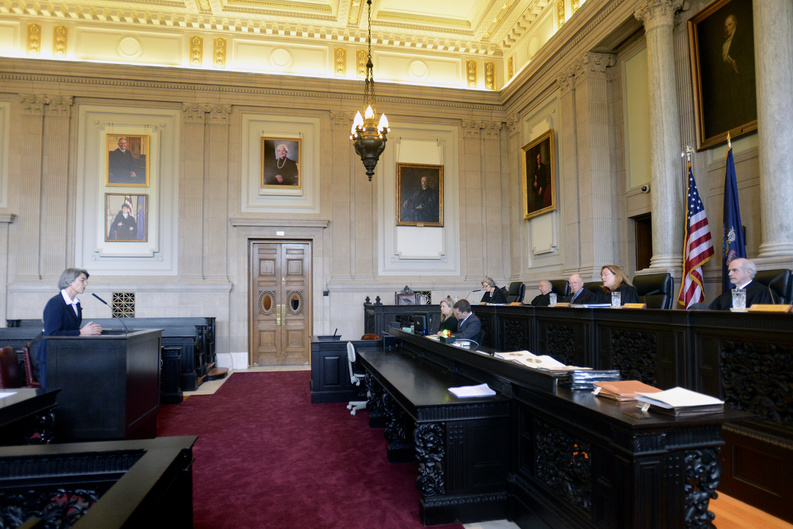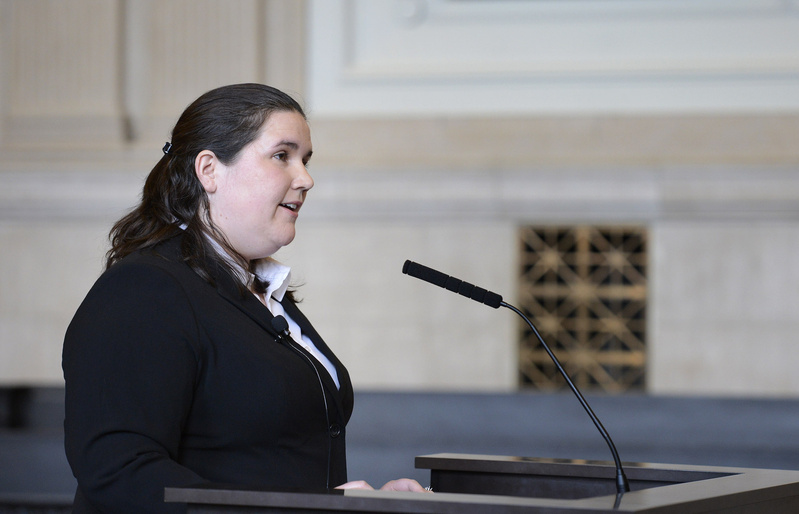PORTLAND — The state Supreme Judicial Court on Thursday heard the final appeal by a national anti-gay marriage group that has opposed opening its donor records to state officials. But those contributors’ names could become public within a few months regardless of the high court’s decision.
The National Organization for Marriage has fought for more than three years to keep confidential its list of donors who helped bankroll the 2009 ballot campaign that overturned a state law allowing same-sex couples to marry.
NOM’s fight has been a two-front legal battle regarding the 2009 anti-gay marriage campaign in Maine, one fight in state court and the other in federal court. It has already lost the federal case.
NOM was the largest donor to the 2009 campaign, giving $1.9 million to Stand for Marriage Maine, a political action committee that helped defeat same-sex marriage rights in Maine.
Maine’s ethics commission has been investigating whether NOM violated the state’s disclosure law by failing to register and file reports regarding fundraising and spending in the 2009 campaign, and it has argued that NOM has stonewalled the commission ever since.
The U.S. Supreme Court refused in October to hear NOM’s appeal of the Maine law that would require the group to name its contributors. As a result, NOM was forced to release one list of donor names in January.
NOM has released an altered second list of donations for the state case with the names of individual donors redacted, with “John Doe 1” and “John Doe 2” printed instead, according to Indiana-based attorney Kaylan Phillips, who represents NOM.
The records have allowed Maine’s ethics commission to pick up its investigation into whether NOM violated state campaign law, said Jonathan Wayne, executive director of Maine’s ethics commission. However, state officials are barred from releasing the donor names under confidentiality requirements while the investigation continues, he said.
“It absolutely is proceeding,” Wayne said of the ethics commission investigation. “The commission has made some follow up requests. We’re still waiting for some information that was requested in the past couple weeks. The staff would like to wrap up its investigation and report back to the commission soon.”
Wayne said he expects the investigation will conclude in two to three months, and depending on what the investigation finds, the list of NOM donors could be made public then.
“The matter has been the subject of a lot of litigation, and that could continue after the commission reaches its decision,” Wayne said. “I don’t know what the commission’s determination will be. It’s premature to say what will or will not be released.”
At Thursday’s oral arguments on the NOM appeal, Supreme Court Justice Leigh Saufley questioned whether NOM was making the same arguments before the state court that it made in federal court.
“Why is this not moot?” Saufley asked.
Phillips, NOM’s lawyer, argued that NOM should not be considered a political action committee under Maine law and that the First Amendment protects the national organization from having to reveal donor information.
Phillips said that if the ethics commission had the names and addresses of donors, it could contact them and question them in violation of their constitutional rights to be free from harrassment and have privacy in their associations.
“You have said, ‘Trust us. We did not do anything that would require us to register in this fashion.’ And then what you say is, ‘You are simply going to have to depend on our word that we did nothing that would have triggered this particular statute.’ That’s not how litigation works in the United States,” Saufley said. “They have a right to test the credibility of the person saying trust us. How can they do that without asking the donors what was the communication with NOM?”
Saufley was one of six justices of the high court who sat in on Thursday’s oral arguments. The court made no immediate decision on the appeal.
Maine voters approved same-sex marriage in November in a statewide referendum. The law went into effect in December.
Send questions/comments to the editors.




